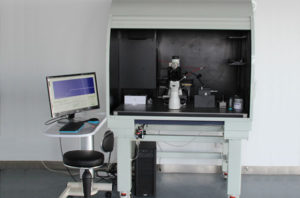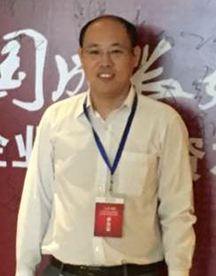
What is your scientific background?
I obtained my bachelor’s degree at the School of Mechanical and Aerospace Engineering, Nanyang Technological University, Singapore in 2006. This was then followed by a PhD at the same institution where I majored in biomedical microelectromechanical systems.

How did you transition from the lab to your current job?
I made the move out of research for two reasons. Firstly, I’d been involved in engineering-related research since my undergraduate years and wanted to see my work directly benefit industrial applications.
I took part and led in more than ten-industry related micro-sensor projects during my doctoral studies and in doing this, I’d accumulated a wide range of experience in scientific research; some projects were completed in a state that would be considered at preliminary stage for industrialization.
However, since most of these projects were financially supported by the government, the number and impact of publications generated by the project were somehow valued more than industrial application.
After having over 40 SCI papers published under my name, I realized that putting scientific research into industrialized use was my preferred course of action.
Secondly, my major focused on the design and manufacture of various devices on a micro-nano scale (mostly sensors) which are considered high-tech and have a sizable potential market. Not only does it require an in-depth knowledge of basic theories but also practical hands-on skills in manufacturing and processing.
After having over 40 SCI papers published under my name, I realized that putting scientific research into industrialized use was my preferred course of action.
To me, this was of more value than pure science based papers. It was with this that I decided to leave pure academic research for a career in the industrial sector.
How do you spend your day in your job?
In 2013, I founded Jiangsu Rayme Biotechnology Co., Ltd, a company selling single-cell nano-scale biochemical detectors and evaporative light-scattering detectors amongst others. The most challenging part of this start-up stage was the transformation of ideas.
Scientific research often pays more attention to technological advance than market and cost, whereas enterprise is market-orientated and profit-focused. A proper technology, therefore, should be adopted in line with the market and must consider the size and acceptability of the market rather than depending on technological advance.
At present, I spend a third of my time working on market expansion another third on product perfection, technological research and development. I spend the rest of my time on talent searching and management. I’ve found that my previous study and work experience have been very helpful.
I can quickly find out core problems in product development using my insight into the R&D process. I also know how to assign talented individuals that work well together and make use of their strengths.
The most challenging part of this start-up stage was the transformation of ideas.
There are three top priorities in my day-to-day job. First and foremost, sales department performance is tracked, as is progress of the market. Secondly, R&D progress is observed and solutions of any technical problems are arranged. Finally, I manage my team, making sure to inspire those already with us as well as keeping a lookout for any outstanding future talent.
What do you like most about your job?
I enjoy the competitive edge that comes with working in business. In order to make the change from a career in scientific research to business, it is necessary to learn marketing and personnel management. With this, a team can understand the commercialization of products.
Do you have any advice for current graduate students and postdocs looking to move out of the lab?
Starting a business needs a strong team; therefore, the members in the preliminary stage are crucial.
Although I encourage scientists to start their own business, it’s not as easy as you might think and comes with many risks. I believe it would be better to work in the right company first before starting a business. This way, you can gain real insight into the operations of an enterprise and perfect any technology previously idealized in tests.
Next, I’d advise that you get to know congenial individuals. Starting a business needs a strong team; therefore, the members in the preliminary stage are crucial. Finally, a market survey is necessary; you need to understand what current technology is needed and whether or not you have the competitive edge.
Where can you be reached if readers want to ask you more about your job?
Anyone interested in contacting me can do so at xuting@raymetech.com
Join the conversation by commenting below or using the #moretoscience hashtag on twitter. Do you have a job in science that you love, or know someone who does? Contact me at dana.berry@biomedcentral.com or @DanaBerryBMC if you’re interested in participating in our series.
Comments